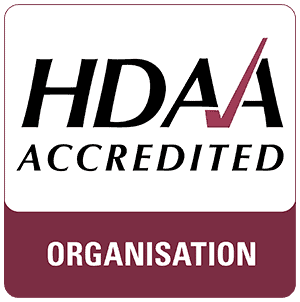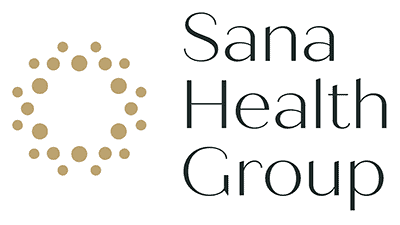





Private Mental Health Retreat in the Sunshine Coast Hinterland
A tranquil, supportive space for people navigating a wide range of mental health challenges, backed by experienced care and evidence-based therapies.
Nationally Accredited for Quality and Safety



Real support for when life feels overwhelming
Struggling with your mental health can feel like being stuck on the sidelines of your own life. Maybe it’s anxiety that won’t ease up, a low mood that won’t lift, or stress that feels unmanageable. Maybe you’re not sure exactly what’s wrong, just that you’re not coping like you used to.
At Palladium Private, we offer private, adult mental health services in a peaceful, retreat-like setting. Whether you’re living with a diagnosed condition or simply feeling overwhelmed, our residential program provides space to pause, reflect, and begin working through what’s holding you back.
We support clients experiencing a range of mental health challenges, including depression, anxiety, trauma, burnout, and co-occurring substance use. With a compassionate team of therapists, counsellors, physical therapists, and medical staff, our approach is both clinical and human — because healing takes both.
What to Expect From Your Mental Health Treatment
Support for when you’re ready for real change
Many clients arrive at Palladium Private knowing they need more than coping strategies—they need real, sustainable change. Some have a formal diagnosis of depression, anxiety, PTSD, or emotional dysregulation. Others have simply reached a point where life feels unmanageable, and they know they can’t keep going as they have been.
No matter your path, our team will work alongside you to understand the challenges beneath the surface, reconnect you with your strengths, and guide you toward a new way of living. Our goal isn’t just short-term relief — it’s helping you build the foundation for long-term recovery, at a pace that respects both your story and your readiness.
A peaceful retreat where you can reset and reflect
Our mental health retreat is nestled in the Sunshine Coast hinterland, offering the calm and privacy that many people need to begin making sense of what they’re feeling. Far from the noise of daily life, you’ll have the chance to slow down, reconnect with yourself, and begin doing the deeper work that everyday stress often makes impossible.
Without the pressure of work, family, or social obligations, you’ll finally have space to reflect, rest, and recalibrate. There’s no expectation to be “on” here, just the freedom to move at your own pace, supported by a compassionate team and a nurturing environment.
We treat the person, not just the symptoms
Mental health challenges rarely exist in isolation. That’s why we look at the whole picture — your environment, physical health, thought patterns, trauma history, relationships, and emotional regulation.
Your program may include one-on-one therapy, mindfulness, physical movement, creative therapies, and educational workshops, all designed to help you reconnect with yourself and feel more in control.
We understand the profound impact trauma can have on nutrition, digestion, and overall physical health. To support your recovery, every client enjoys nourishing meals daily, crafted by our dedicated in-house culinary team. Alongside personalised wellbeing support, this comprehensive approach promotes healing from within.
Support from experienced professionals who get it
Your care team includes experienced clinicians, who’ve supported countless people through recovery, including therapists, counsellors, yoga therapists, personal trainers, and nurses. Many of our staff also bring lived experience of mental health recovery, which adds a layer of compassion and connection you won’t always find in traditional settings.
Together, we help you move toward recovery with structure, compassion, and expertise.
Our Approach to Mental Health Recovery
Our residential program is built around a multi-disciplinary model of care that supports both short-term relief and long-term change. Set in the Sunshine Coast hinterland, our facility offers a peaceful environment to reconnect with your sense of self.
Each client works with a team of professionals such as counsellors, psychotherapists, nurses, and other allied health professionals. Your team collaborates closely to ensure every aspect of your emotional, physical, and psychological wellbeing is supported in an integrated way. Together, they’ll guide you through a structured plan that integrates evidence-based therapies with holistic wellbeing practices.
Our program includes:

Individual Therapy

Group Therapy

Medical Support

Yoga Therapy

Massage

Personal Training

Art Therapy

Nourishing Meals
Our goal is to help you step away from the daily pressures and uncover what’s really going on, then give you the tools, space, and support to move through it. Whether you’re seeking a mental health rehab or a more compassionate alternative to hospital-based care, Palladium Private offers a path forward.
Testimonials
What Happens Next
Taking the first step can feel daunting—but it doesn’t have to be. We’ll walk you through program options, availability, costs, and available funding streams—so you have everything you need to make the decision that’s right for you or someone you care about.
01
Enquire: Submit the form or call 1300 573 095
02
Complete Questionnaire: Help us match you with the right program.
03
Choose Funding: Explore self-funding, super or DVA options.
04
Confirm Admission: Secure your place and prepare to begin.
05
Arrive & Detox (If Needed): Begin with supported detox if required.
06
Begin Program: Orientation, assessments, and your tailored schedule.
Start Your Journey Today
You don’t have to navigate this alone. Whether you’re reaching out for yourself or someone you care about, our experienced intake consultants are here to listen — without judgment or pressure.
You deserve expert care, and we’re ready when you are. One conversation is all it takes to begin.
Frequently Asked Questions
Do I need a mental health diagnosis to access the program?
No. While some clients come to us with a formal diagnosis, many do not. You might simply feel overwhelmed, emotionally exhausted, or unsure where to turn next. During your intake assessment, we’ll explore your current experience and help determine whether a multi-week residential stay is the right next step for you.
What types of mental health concerns do you support?
We work with adults experiencing a wide range of mental health challenges, including stress, anxiety, depression, trauma, burnout, and emotional dysregulation. We also support clients managing co-occurring issues, such as substance use or alcohol addiction. Our model is flexible and individualised — designed to meet you where you are.
Can Palladium Private support high-acuity mental health conditions or neurodivergent clients?
Yes. We regularly support clients living with complex and high-acuity mental health conditions, including Borderline Personality Disorder (BPD), Bipolar Disorder, Complex PTSD, and emotional dysregulation. Our trauma-informed, multidisciplinary model is designed to meet clients with diverse needs, including those who may not have found suitable support in traditional outpatient services. We also work with many neurodivergent clients, including individuals with ADHD, Autism Spectrum Disorder, and sensory processing challenges.
Is this a hospital or clinical facility?
Palladium Private is a NSQHS-accredited mental health facility in a retreat like setting. We are not a hospital, and our setting reflects that. It’s peaceful, non-institutional, and designed to support deep emotional work in a supportive, therapeutic environment. While medical support is available, our focus is on integrated, long-term recovery, not acute crisis management.
How long is the program?
We recommend a multi-week stay to allow enough time for meaningful progress. While 4 to 5 weeks is clinically ideal, we understand that each person’s needs and circumstances are different. Our team will work with you to determine the most appropriate length of stay during the assessment process.
Can I come even if I’m not sure what I need?
Yes. You don’t need to have everything figured out before reaching out. Many clients come to us feeling overwhelmed, emotionally stuck, or simply not themselves but are unsure why.
At Palladium Private, we take the time to understand your experience without judgement. Through collaborative assessment and compassionate support, we’ll help you gain clarity on what’s contributing to your distress and guide you toward the right tools and strategies for recovery. Taking the first step doesn’t require certainty, just the willingness to explore what’s possible.
It’s Time to Take the Next Step
When it all feels like too much, something needs to change.
Whether it’s for you or someone you love, you don’t have to keep living this way.
There is a path forward. Let’s take the first step together.